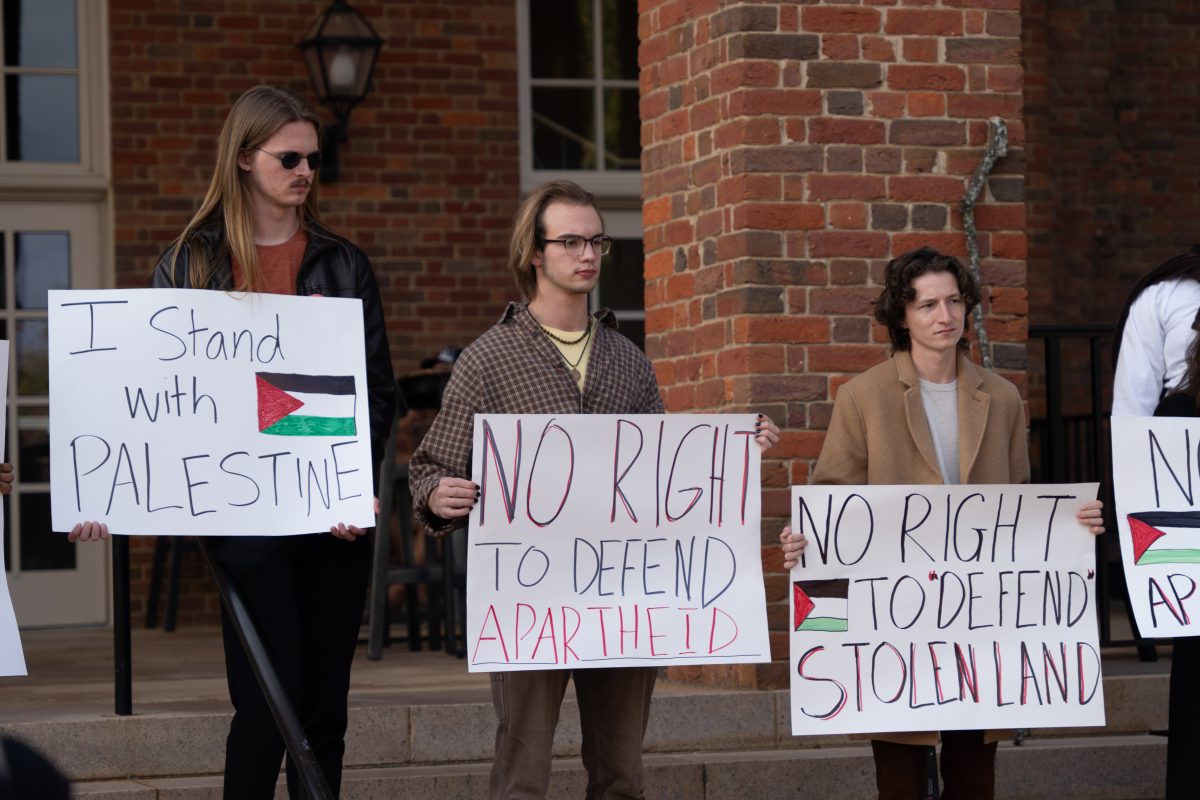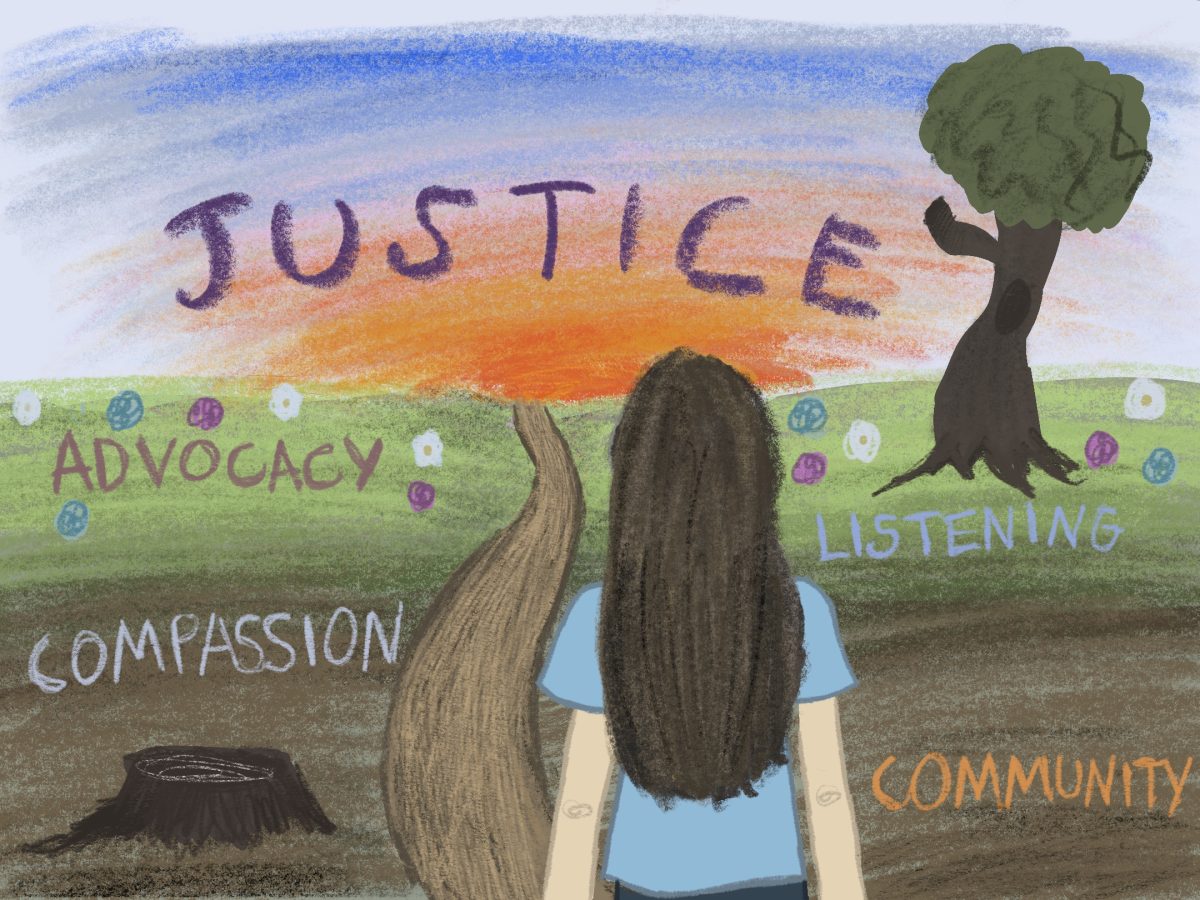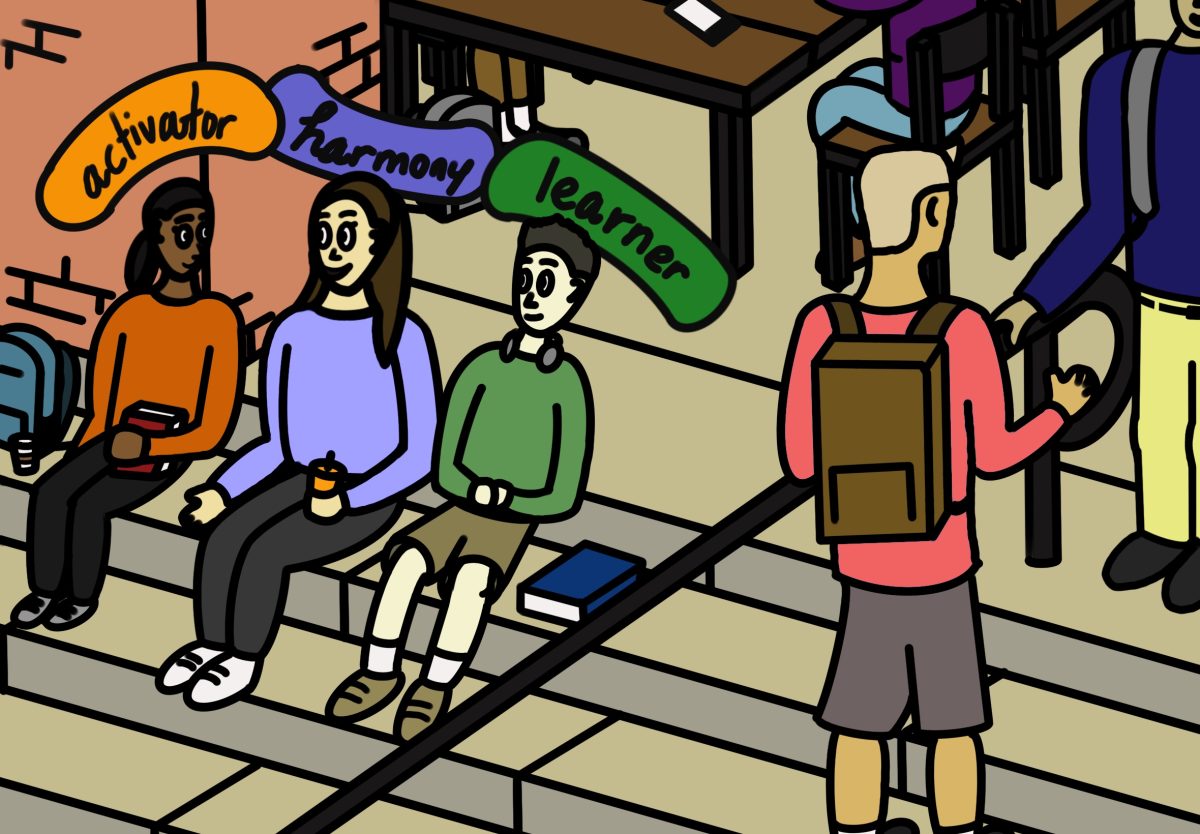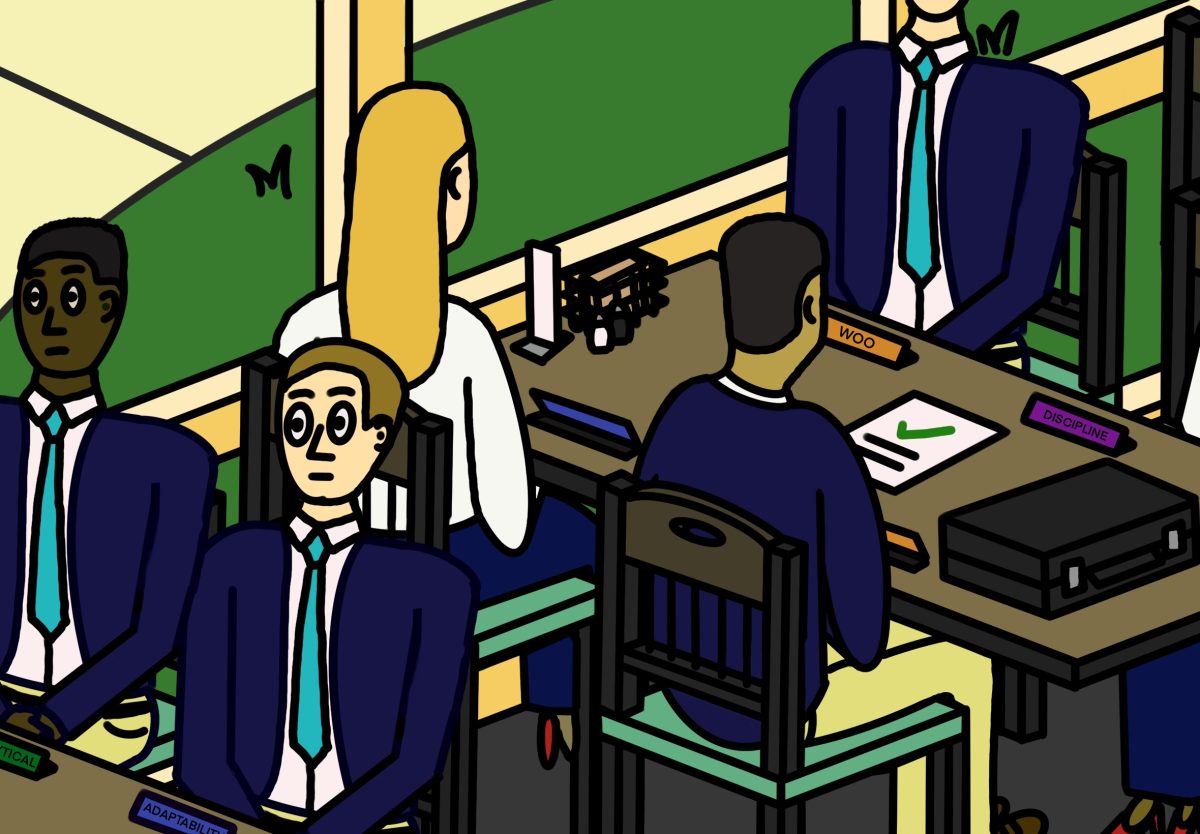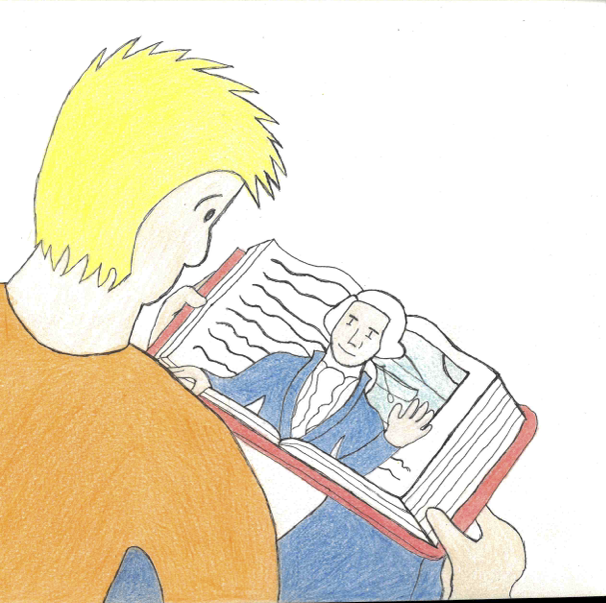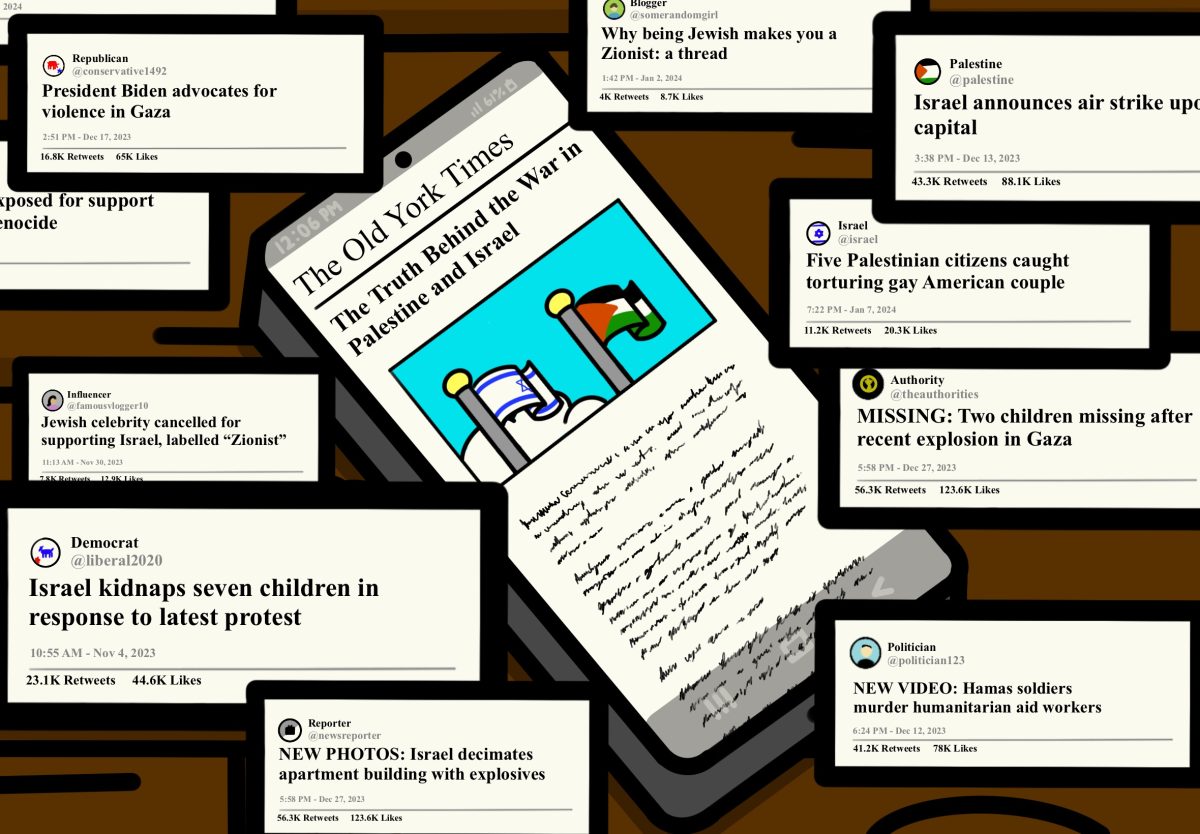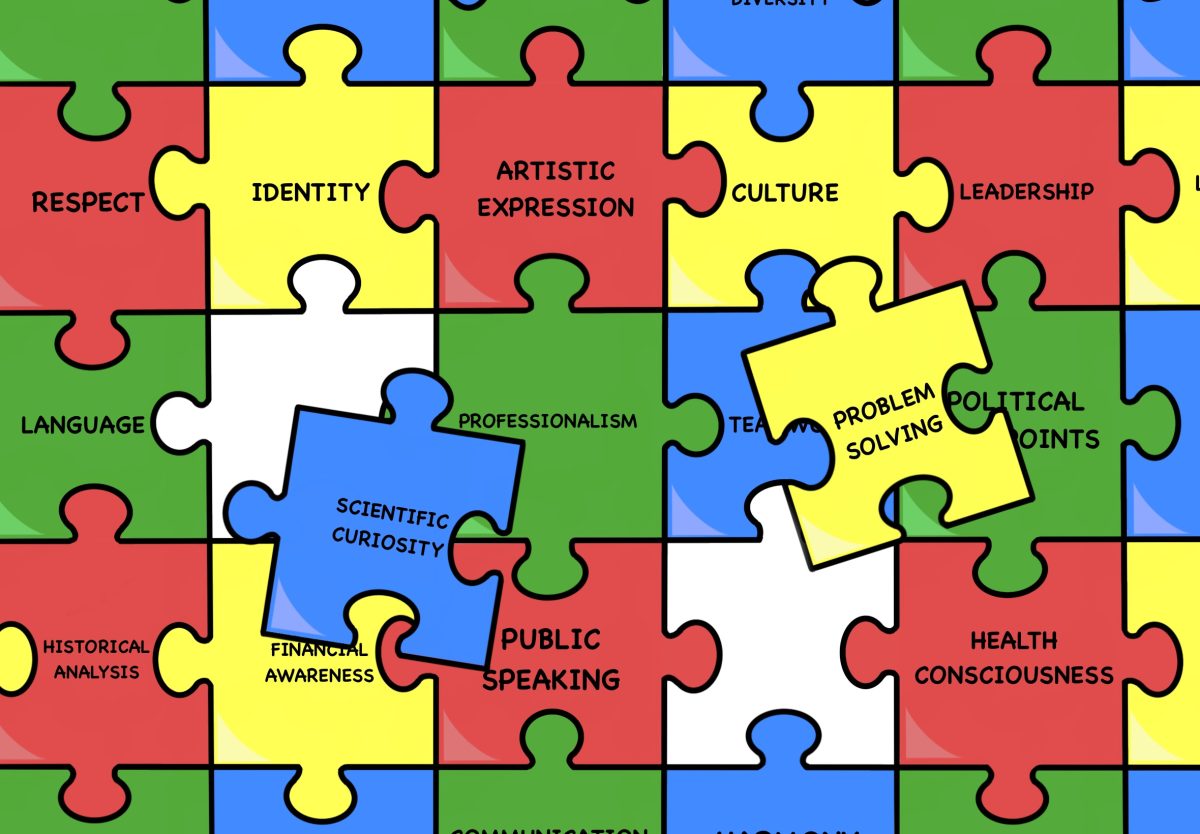The Gaza Strip, a small territory on the southwest border of modern-day Israel, is home to 2 million Palestinian people. Since 1967, Gaza has suffered under continuous Israeli occupation. Beginning in 2005, the occupation has taken the form of an Israeli-imposed blockade, prohibiting people and essential goods from freely entering and exiting the “open-air prison” of occupied Gaza.
On Oct. 7, the military wing of Hamas—the Palestinian governing authority within the Gaza Strip—staged a large-scale assault on several Israeli military bases and agricultural communities within Israeli borders, killing a large number of Israeli civilians (766 currently confirmed). That very day, Israel launched a retaliatory assault of unprecedented scale and brutality on Gaza—even compared to previous atrocities, such as those in 2012, 2014, and 2018. Now, Israel’s war on Gaza goes on unchecked and aided by the most powerful people in our country.
Over 10,000 Palestinians have been murdered by the Israeli Defense Forces since Oct. 7—at least a third of them being children. Thousands more have been lost in the rubble, unaccounted for. Over 1.4 million people have been displaced. Hundreds of thousands are starving and have already run out of clean drinking water. Israeli airstrikes are targeting locations densely packed with innocent people and necessary for physical & spiritual survival, including hospitals, refugee camps, UN shelters, bakeries, mosques, and churches.
Let us be entirely clear: even if Hamas militants were holed up in every single one of these locations, mass murdering innocent people to reach them would remain unacceptable, not to mention in flagrant violation of international law.
Throughout their ongoing war on the people of Gaza, Israeli military leaders and politicians have made proclamations such as “we will eliminate everything, ”we are fighting human animals, and we will act accordingly,” and “it’s not true this rhetoric about civilians not aware not involved.”
Reputable scholars have named Israel’s assault “a textbook case of genocide,” and humanitarian organizations such as the International Rescue Committee have spoken of “unacceptable levels of civilian harm and suffering” as a result of Israel’s unrelenting violence. As we bear witness to this nightmare, it is high time that we, as a community, speak up for the Palestinian people.
Effective solidarity starts with disrupting the culture of silence right here on campus and in our local community. Across the country, the wheels of suppression are spinning faster by the day. Less than a week ago, a number of our own students and professors who attended a ceasefire rally in downtown Greenville—including Jewish, Muslim and Arab students and faculty—were slandered with false accusations of extremist antisemitism by a prominent local news station. Meanwhile, academic institutions throughout the United States punish students and faculty alike for daring to speak out.
It is in this context that we must look to the bravery of the Jewish students at Brown University who stood their ground even as they were arrested by police for peacefully demanding a ceasefire. To the resilience of the Harvard students who spent 11 hours writing out the names of over 7,000 murdered Palestinians. And to the determination of Muslim students at the University of Connecticut in the face of violent threats.
We must also look outside the academy, such as to the American Jews who chanted “Not in our name!” in front of the Statue of Liberty and the Congressional staffers who, in direct opposition to many of their own bosses, called for a ceasefire in front of the Capitol building.
It is time that we fully commit ourselves to our University’s promise to “remembering the human cost of colonialism” through solidarity with the dispossessed and disregarded of today’s global order, through listening more attentively than ever to Palestinian voices, and through adopting a zero-tolerance policy for anti-Palestinian racism, which paints Palestinian lives as less meaningful and less grievable than the lives of others.
Making sense of the experiences and testimony of Palestinians is central to our work of justice. Author and activist Ta-Nehisi Coates recently pointed out the similarities between the experience of being black under Jim Crow and being Palestinian under Israel’s “segregationist apartheid regime.” Angela Davis has linked violence against Palestinians with police brutality right here in the United States. Associations to American conflicts such as these are grounds for building effective solidarity and empathy with the Palestinian people.
Further, we must remain absolutely principled in our speech against the war on Gaza. This requires focusing on the real causes of the conflict: Israeli settler-colonial violence, the American war machine, and the inaction of the global great powers. This also requires remaining crystal clear that Jewish people around the world are not to blame, and that antisemitism in all forms is unacceptable.
Pennsylvania House Representative Summer Lee put it brilliantly when she said: “We can here, today, exhibit a love for everybody impacted here: our Jewish siblings, our Israeli siblings, our Palestinian, Muslim, and Arab communities.”
As students at a place of learning, we further bear a special privilege and responsibility to educate ourselves. Our library system contains a treasure trove of knowledge. I personally recommend the works of Israeli historian Ilan Pappe and Palestinian-American historian Rhashid Khalidi. Authors such as Tom Segev, Gideon Levy, Antony Loewenstein, and Edward Said also have written excellent books on the topic. Online, I would recommend looking at Jewish Voice for Peace’s primer on Zionism & Anti-Zionism, the reporting of the magazine Jewish Currents, and this heart wrenching piece in The Nation from a Palestinian journalist born and raised in Gaza.
It is imperative we refuse to be silenced in the face of our own country’s active participation in this world-historic atrocity. We cannot be mute witnesses, and we cannot ignore the fact that the very people who are supposed to represent us are funneling weapons and resources to facilitate Israel’s campaign of mass murder and ethnic cleansing. As a community, we have the power to educate ourselves about and speak up against this profound injustice. It is time we wield that power.


























